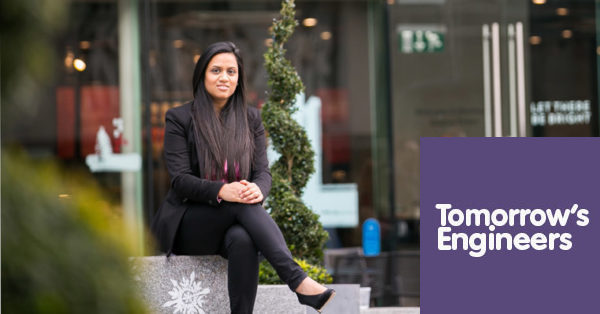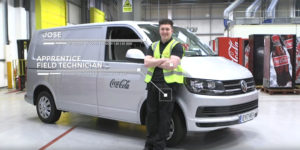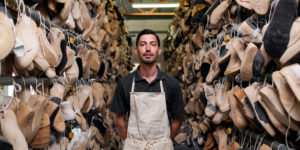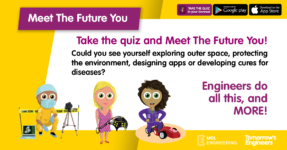This content is originally from Tomorrow’s Engineers
The world is fuelled by oil and coffee, some say, but it’s no secret the world’s oil is running out. Jaz studied for a mechanical engineering degree while working part-time in a supermarket. Now she helps Starbucks look at its carbon footprint and how much energy it uses as a company…
Name: Jaz Rabadia MBE
Age: 30
Job title: Senior Manager of Energy & Initiatives
Company: Starbucks
Hometown: London
A-levels: Maths, Chemistry, Design Technology, (A levels)
Sports Science (AS Level)
University studies:
- BEng Mechanical Engineering, City University, London
- MSc Energy, Environmental Technology & Economics, City University
Other qualifications: Chartered Energy Manager, MEI
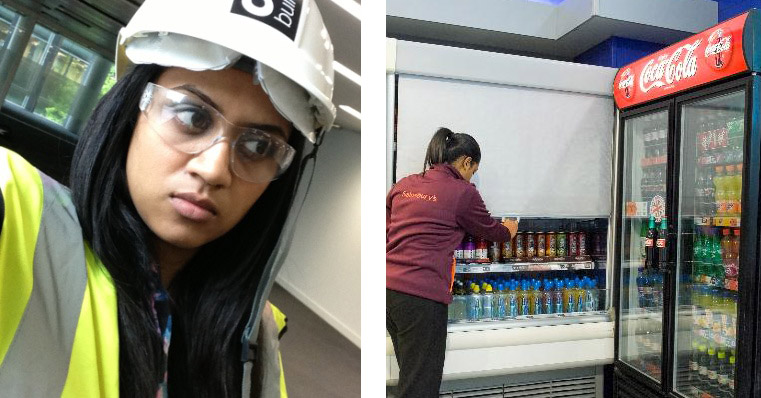
Tell us about your job…
As Senior Manager of Energy & Initiatives at Starbucks, I‘m responsible for reducing the electricity used to power the stores, the gas used to heat the stores and the water used for washing and cleaning across our Europe, Middle East and African region.
My role involves buying energy from the wholesale markets, negotiating competitive contracts with suppliers, implementing energy efficiency engineering projects across the stores, influencing the sustainable design of new stores, setting accurate budgets, developing environmental colleague engagement tools and making sure the business complies with all environmental legislation.
I use lots of different skills at work such as creativity, project management, engineering, financial planning, communication and problem solving. Every day brings a new challenge which is what makes the job so exciting.
How does your work affect the world around us?
Energy is a declining resource. UK oil reserves are beginning to empty and old coal and nuclear power plants are reaching their end of life. I am helping Starbucks to become supplied by 100% renewable energy and by doing so I am contributing to the UK’s reduction target and reducing the carbon footprint of Starbucks.
What made you decide to become an engineer?
When applying for university I had no idea about what I wanted to do once I’d graduated. I chose mechanical engineering because I enjoyed science, maths and practical projects in design technology. I also wanted to keep my career options open and I knew a degree in engineering would impress future employers.
I read up about engineering and realised how important it is to our daily lives and how it helps better the lives of people all around the world. I knew then that by studying engineering, I could also help to make a difference.
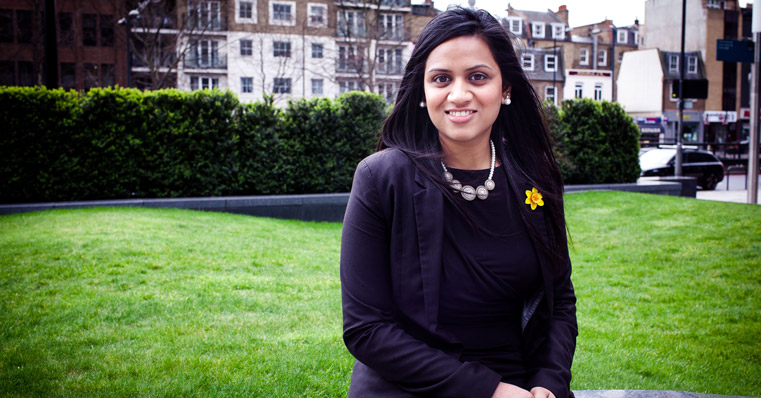
There are a number of different routes you can take into a career in engineering. What route did you take?
When studying mechanical engineering I worked part time on a Sainsbury’s checkout. In my final year I chose modules in renewable energy and energy management and decided to base my dissertation around these subject areas.
I carried out an energy study in the Sainsbury’s store that I was working in, which gave me real life experience of energy engineering and management. I introduced a number of energy saving projects into the store such as:
- Refrigeration night blinds. These act like a door – they keep cold air in the fridge overnight, rather than it spilling out onto the supermarket aisles. The fridges work less hard and use less energy.
- Building management controls. I programmed timings for turning lights on and controlling the level of lighting during supermarket stocking. I also controlled the temperature at which heating and cooling turns on and off.
- Energy awareness campaign. I made staff aware of how much energy was being used and saved and sent out monthly energy newsletters in their payslips.
The head of energy was so impressed by the project he invited me to the head office to present my findings and eventually offered me a job. That was the start of my energy engineering career – it began on a checkout!
How important was studying maths and science in school for what you do now?
The subjects I took at school, particularly maths and science, were hugely important to what I do today. It helps to know the scientific and mathematical theory behind what I do and I apply them to my work every day.
Numbers are a big part of my job. I handle lots of energy data and manage large budgets, I build business cases and talk to suppliers about energy saving technologies and this is where my science and engineering knowledge comes in very handy. I enjoyed maths and science in school, especially practical experiments, which helped bring science to life for me.
What personal qualities do you think are important for being an engineer?
I would say the two most important things an engineer needs to have are creativity and good communication skills. Often, engineers deal with complicated pieces of work that need to be explained to non-technical people. Being able to communicate complex ideas in a simple language is not always easy, but is crucial. I also think good engineers are creative with their ideas and their approach. They can solve problems by creative thinking.
There are fewer women working in engineering than men. What would you say to girls who might be interested in a career in engineering?
Engineering careers can be as practical or as executive as you like. Whether you are someone who likes to get their hands dirty or not, careers in engineering can offer you both.
“Engineering is not about what you do, it’s about how you think.”
If you’re unsure of what you want to go into, studying engineering helps to keep your options wide open. Engineers and people from STEM (science, technology, engineering and maths) backgrounds are very employable.
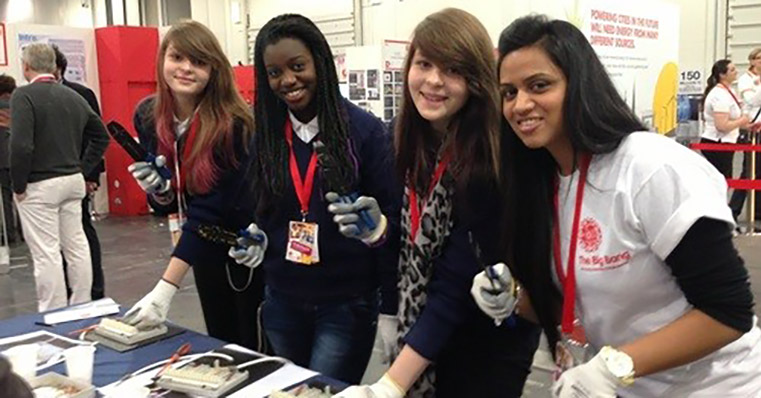
What do you like to do in your spare time?
I’m also a STEM Ambassador, and often go to schools and colleges to talk about my career journey and help students understand where a career in engineering and energy could take them.

If you could go back in time and be the inventor of any product, what would you choose?
I would have loved to be the inventor of Lego. Lego is a great way of introducing people to simple engineering concepts and it’s so much fun! It allows people to get really creative and it’s something you can do whatever your age.
Jaz’s story was brought to you by Tomorrow’s Engineers, republished with permission and thanks.
- Engineering career stories and advice
- Engineering jobs you can do without a degree
- See all engineering careers
- Aged 14-24? Boost your engineering CV with free life skills training
Engineering careers information
See all articles related to engineering careers…

